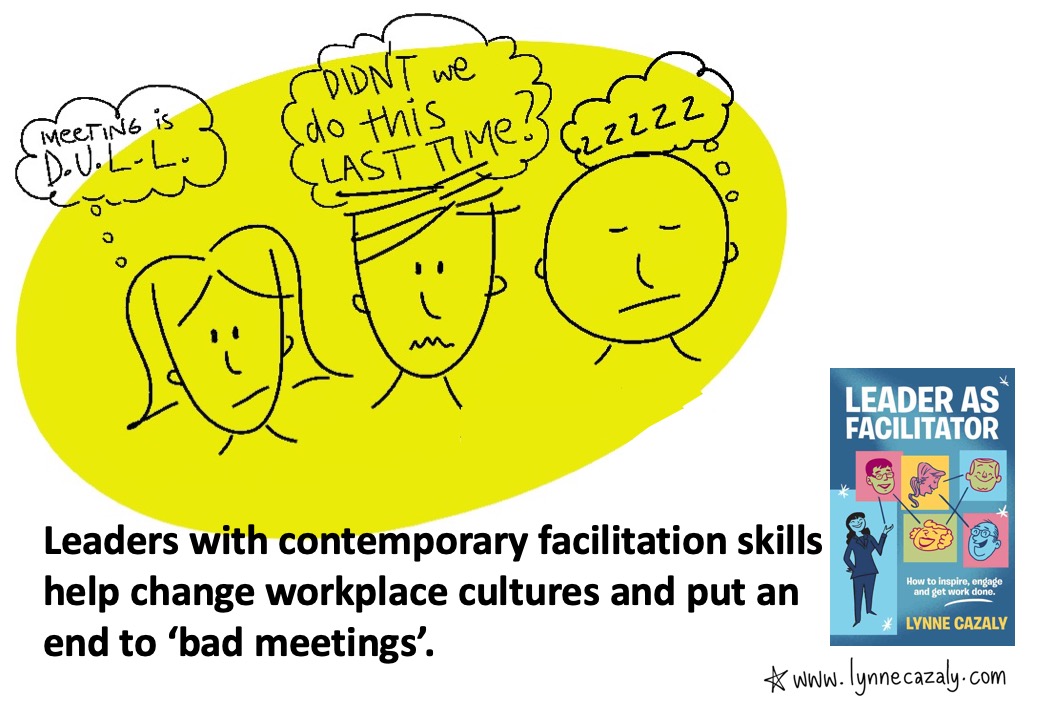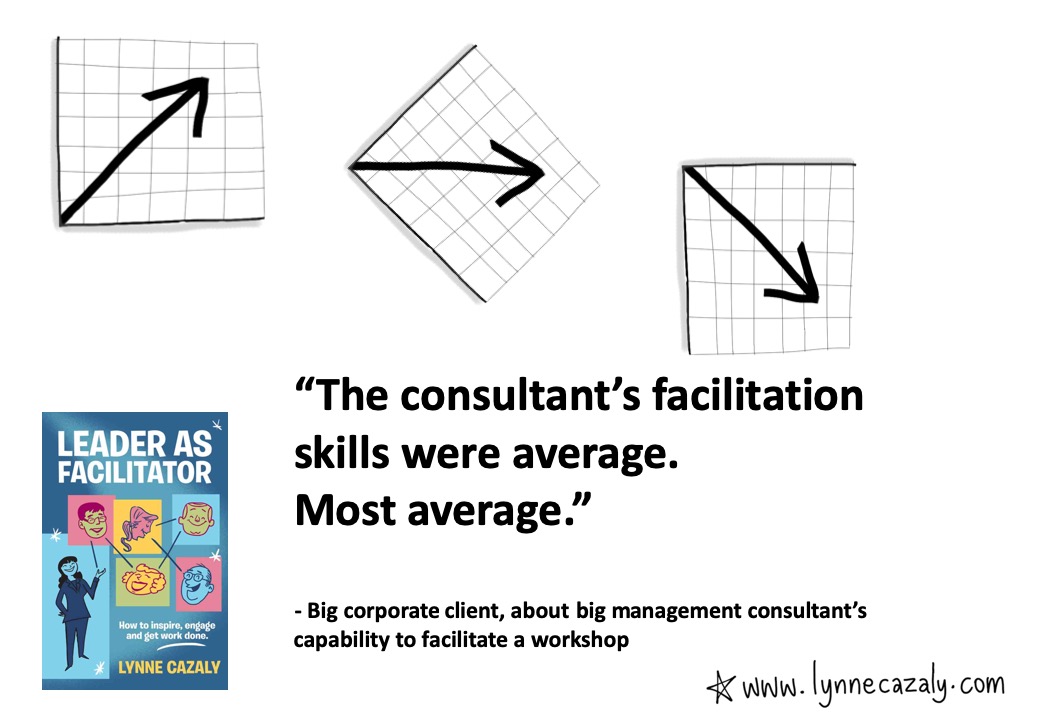We’ve all experienced ‘average' facilitation
 Wednesday, September 18, 2019 at 9:10AM
Wednesday, September 18, 2019 at 9:10AM  Facilitation: someone at the front of room, leading a meeting/workshop, helping make things easier. (Whether it's the right definition or not isn't what this is about.)
Facilitation: someone at the front of room, leading a meeting/workshop, helping make things easier. (Whether it's the right definition or not isn't what this is about.)
My point is: there's an abysmal standard of facilitation in workplaces today.
You might think it’s not ‘that bad' or workshops you’ve attended have been mostly ok.
Not so quick. Know that facilitation is something you learn: like making an omelette, riding a horse, flying a kite. You’re not born with facilitation skills, you learn. It's not long at work before we experience average facilitation.
Think of all the sh*tful meetings you’ve been in.
Meetings that:
😖ran over time
🤯were dull and disengaging
😠achieved few outcomes
🤢were dominated by a few/same voices
😱were unsafe or awkward ... the list goes on.
Bad workplace meetings contribute to bad workplaces and working environments. They're time wasting, energy-draining, enthusiasm-robbing ... feeding cynicism, negativity and disengagement.
Yuk!
If you're a leader or want to be, it starts with you at every meeting.
You can learn contemporary facilitation skills. Then you won't lead sh*tful meetings.




















